Mercury Connections: From Science Collaboration to Policy
BRI’s concept for Mercury Connections provides a model that fosters research collaboration among distinguished scientists across various disciplines and regions, as well as land-use managers, government agencies, non-governmental organizations, and academic institutions. The research, however, is only part of the story. BRI is also committed to bringing our scientific findings to the forefront of public awareness. The Mercury Connections reports are an important and necessary tool for decision makers and regulators in the critical process of developing and regulating policy.
The Impact of Mercury on North American Songbirds (2020)
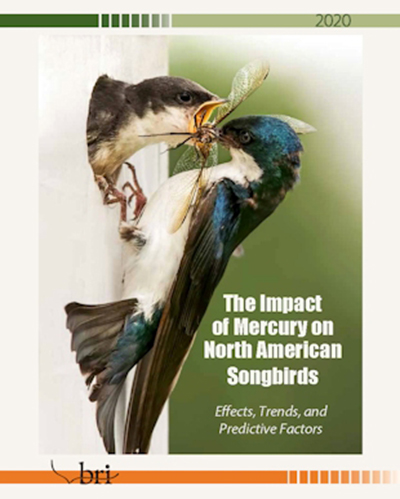
To inform policy efforts and advance public understanding, a group of 61 scientists collaborated on producing 15 papers that describe the impacts of mercury on songbirds across the United States and Canada (Cristol and Evers 2020). This publication, The Impact of Mercury on North American Songbirds, highlights the major findings of those studies and collaborative effort.
The 15 scientific papers representing laboratory and field studies are now published in a special issue of the journal Ecotoxicology (October 2020). The papers reflect five general categories of research on mercury in songbirds: (1) effects on health and physiology; (2) temporal trends; (3) landscape variations; (4) bioindicators; and (5) migration.
New York State (2018-2019)
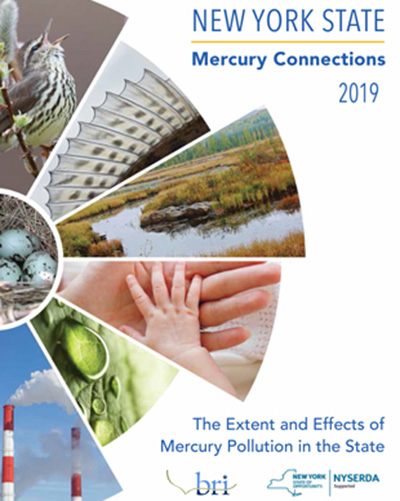
BRI has been part of a collaborative effort to examine spatial and temporal trends of mercury accumulation in the environment and biota across New York State. This scientific synthesis has culminated in a series of 22 papers having been recently published in a special issue of the journal Ecotoxicology. The New York State Mercury Connections booklet highlights major findings of the collaborative effort.
Western North America (2011-2014)
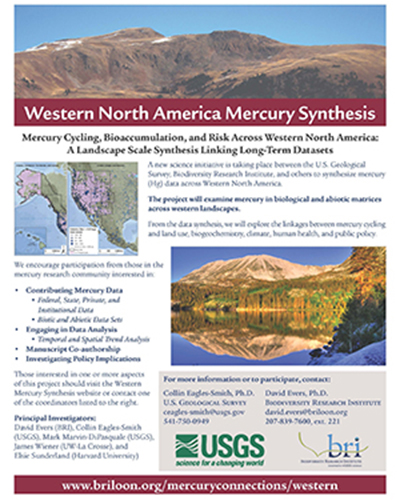
BRI continued its efforts to assess environmental mercury deposition across North America in this initiative for the western region of the continent. With insight and experience gained from the two previous synthesis efforts, researchers collected state, provincial, and federal measurements of mercury in biota, air, water, and soil to better understand spatial and temporal trends in mercury accumulation and deposition in western regions of the United States and Canada, as well as in areas of Mexico.
Great Lakes Region (2008-2011)
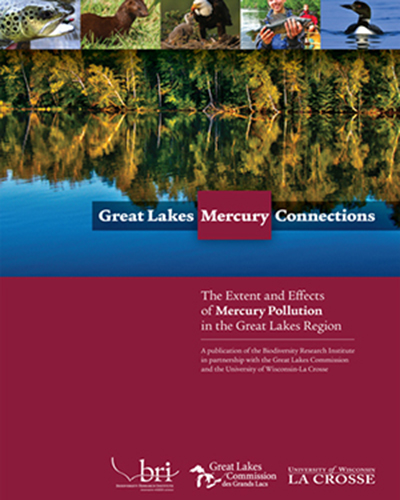
In a regional mercury study that encompassed the largest freshwater ecosystem in the world, BRI collaborated with the Great Lakes Commission and the University of Wisconsin-La Crosse to compile a wide variety of mercury data. In this study, 170 scientists and managers compiled and evaluated more than 300,000 mercury measurements. Primary results have been published in 35 scientific papers in the journals Ecotoxicology and Environmental Pollution. A summary of the research is presented in the report, Great Lakes Mercury Connections: The Extent and Effects of Mercury Pollution in the Great Lakes Region.
Northeastern United States and Eastern Canada (2001-2005)
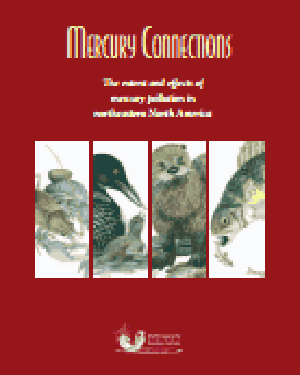
The Great Lakes mercury research builds on a landmark study for which BRI and Environment Canada led a comprehensive effort to compile mercury data from across the northeastern United States and eastern Canada. As a result of that effort, 21 scientific papers were published in a special issue of Ecotoxicology and summarized in BRI’s report, Mercury Connections: The Extent and Effects of Mercury Pollution in Northeastern North America.
MercNet
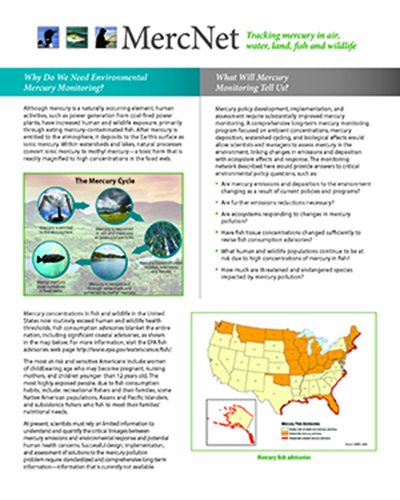
BRI has developed several networks that link research programs and provide an arena for shared methods and data. MercNet is a proposed comprehensive long-term mercury monitoring program focused on ambient concentrations, mercury deposition, watershed cycling, and biological effects.
Photo Credits: Header photo and NY Landscape © BRI-Jonathan Fiely



